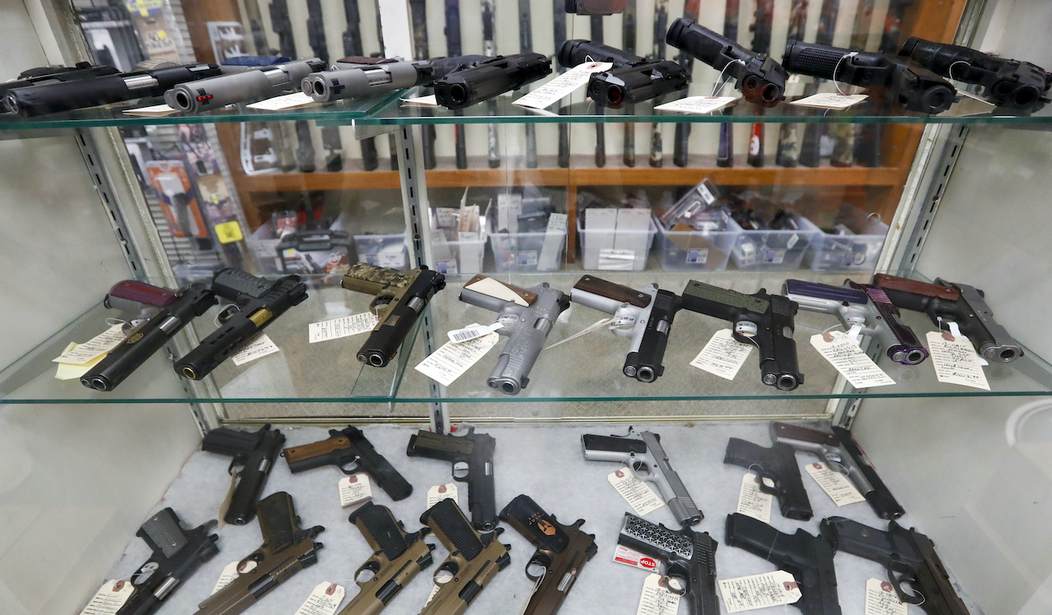Despite writing for a Second Amendment website, few people really know whether I own guns or not. I can say I have firearms, but no one really knows for certain. This is a good thing. It’s not really anyone’s business who owns what.
However, there are people out there who seem to think the public has a right to know who around them owns firearms.
We’ve seen several attempts to reveal who in a community has guns, and they’ve been met with serious backlash every single time. Now, the Boston Globe has decided to try and make the case for this kind of thing.
But there’s a case for making at least some gun licensing information public — and not so members of the public can keep tabs on guns that might be in their neighborhood. Last week’s apparent hate crime in Winthrop, where a man armed with two guns shot and killed two people, raises questions about transparency around gun permittingrecords. That lack of public information about gun permit-holders makes it harder to judge how well the police chiefs who issue those permits are using their authority, and to hold them accountable when they make the wrong call. The shooter, who was gunned down by police, had a license to carry. Yet little is known about who the licensing authority was in this case and how that decision was made.
Here’s another reason why full secrecy may not be a good idea: Gun license applications in the Commonwealth have been on the rise in recent years. In 2020, applications doubled to more than 54,000 — more than the previous two years combined. Massachusetts allows prospective gun owners to apply for a six-year license to carry at the local police department where they live or have their place of business. Convicted felons are disqualified. And even after an applicant pays a fee and meets other requirements (such as passing a safety course), local police can still deny the license. That’s because there is a measure of flexibility that resides with local police chiefs — a standard of suitability — built into the process.
“In my view, police chiefs have a high level of discretion,” said state Representative David Linsky, who has been involved in gun prevention legislation on Beacon Hill. For instance, “some departments do extensive social media searches [on the applicant] while others don’t,” Linsky said. “It really does vary from department to department.”
“There’s a bit of judgment, but it’s not unfettered judgment,” said William Brooks, the chief of police in Norwood. In the end, the vast majority of applications are granted. Still, even gun rights advocates themselves have sometimes grumbled about the mysteries of a gun-permitting process that’s so reliant on individual chiefs’ decisions.
For his part, Brooks feels strongly that opening up permit recordsdoes not serve the public interest. Disclosing who legally owns a gun and where they live would make those homes more likely to get broken into. “It becomes easier for criminals to steal from a home than from gun stores,” said Brooks.
Bingo.
As things stand now, we have an issue with guns being stolen. However, criminals have to gamble a bit. They have to break into home after home in order to find guns. Oh, they might get lucky the first time, but the odds are against that.
Yet if you put it out into the wild where anyone can access it, you can create a freaking gun shopping list.
Further, if someone has decided to kill another, a quick look at a database of gun owners would show they have a gun. That allows the bad guy to plan around that, to hit them when they’re around one of the many gun-free zones we have in this country.
And what about the potential benefits to public safety?
There really aren’t any. Oh, sure, the Globe points to a recent crime to bolster their argument, but it’s still exceedingly rare that someone who goes through the steps to legally obtain a firearm and a carry permit commits a criminal act. In fact, those with carry permits are known to be more law-abiding than judges and police officers.
What this is really about, though, is that it’s far easier to shame your neighbor about their gun ownership when you know they have a gun. Time and time again, newspapers pretend that who owns what should be a matter of public record while also doing everything they can to stigmatize not just gun owners but those who support the right to keep and bear arms. Yet that stigmatization is broad. It’s impossible to target individuals because no one knows who they are.
The Globe wants to change that, likely because it makes them uncomfortable to not know if they should demonize their neighbor or not.
Which is precisely why that kind of information should be kept from the public. It’s also why I oppose any kind of licensing. When a database of gun owners exists, someone will think they have a right to know who owns guns. Remove the databases and the temptation is meaningless.
Yet Massachusetts won’t go down that particular road unless someone makes them.








